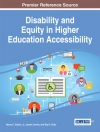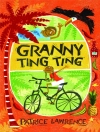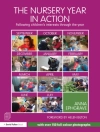This myth-busting and question-focused textbook tackles the fascinating and important social and policy issues posed by the challenges and opportunities of ageing.
The unique pedagogical approach recognises the gap between the lives of students and older people, and equips students with the conceptual, analytical and critical tools to understand what it means to grow old and what it means to live in an ageing society.
Features include:
• Myth-busting boxes incorporated into each chapter that unpack the common assumptions and stereotypes about ageing and older people in a clear and striking way;
• A multidisciplinary and issue-focused approach, interspersed with lively examples and vignettes bringing the debates to life;
• Group and self-study activities;
• A comprehensive glossary of key terms.
Answering questions which have arisen over years of longitudinal and systematic research on the social implications of ageing, this lively and engaging textbook provides an essential foundation for students in gerontology, sociology, social policy and related fields.
Зміст
What is population ageing? (Demography)
When am I officially past it? The ageist zeitgeist (Ageism and ageist stereotyping)
Will I ever have enough money to retire? (Retirement, active ageing and working longer)
Will I need care when I am old? (Care and support in later life)
All old people are pretty much the same, aren’t they? (Diversity among the ageing population)
Aren’t gender differences neutralised by age? (Gender)
Why do older people have it so good? (The myth of intergenerational conflict)
Why do older people vote, while younger people protest? (Politics of ageing)
What does it mean to live a long life? (Cultural gerontology)
What are my next steps? (Conclusions, reflections and actions)
Now that you know about ageing … (Additional questions and revision)
Про автора
Paul Nash is a chartered psychologist and Associate Professor in the Leonard Davis School of Gerontology at the University of Southern California.












